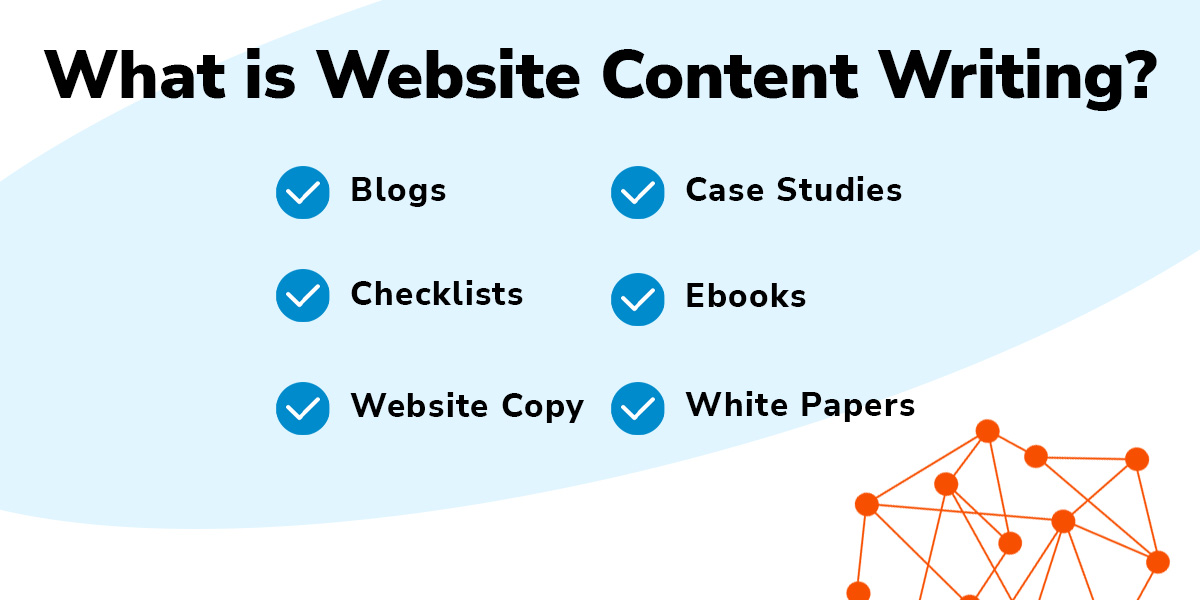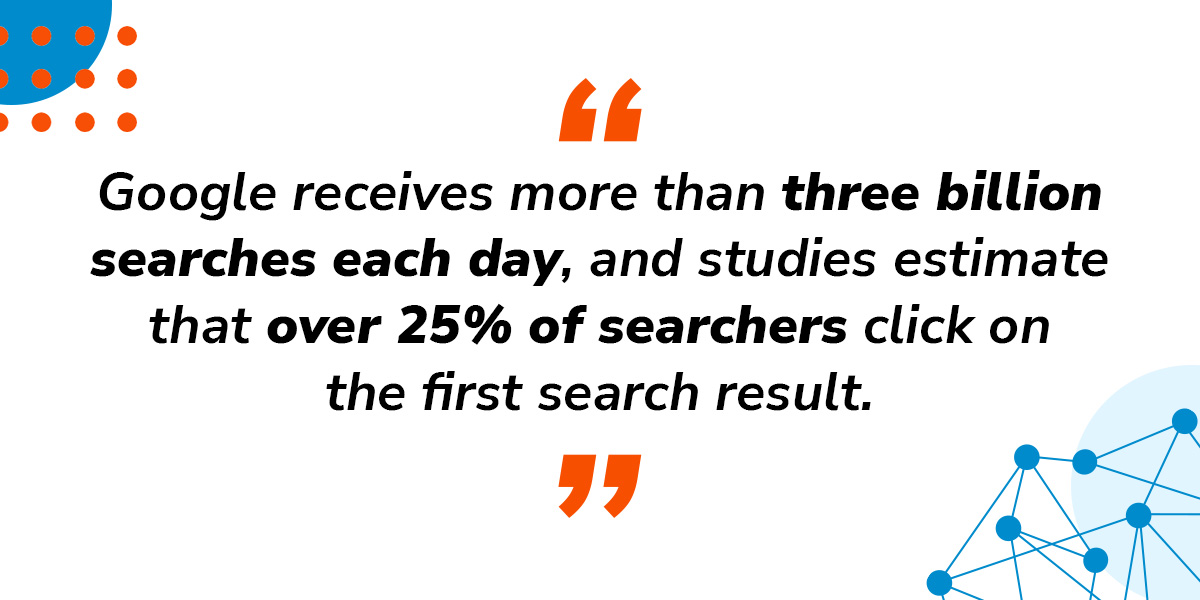What Is Website Content and Why Is It Important?
July 8, 2021 •DJ Team

Google receives more than three billion searches each day, and studies estimate that over 25% of searchers click on the first search result. What are they clicking on?
Website content.
Brands are potentially missing out on a huge number of website visitors by lacking the kind of website content that ranks well in Google and answers the questions people are searching for.
This article will explore what content writing for a website is, different types of content, and why good website content can make or break a website.
What is Website Content Writing?
Website content writing is any writing on a website. If that sounds broad, it’s because it is. Let’s explore the types of content writing that are generally found on a website.

- Blogs: No longer just for writing about your feelings or the day, blogs are an important component of a website’s content marketing strategy. Blog posts are often short—around 750 words—and are designed to inform, entertain, and delight your readers.
- Case Studies: Brands can use case studies to illustrate their value proposition by writing about how their product or service helped a customer or client. Case studies are specific to a brand and should provide in-depth details or data around results.
- Checklists: Often downloadable, checklists are fantastic pieces of lead generation content, content that aims to attract potential new clients. Templates should offer concise, actionable steps for readers. If the content is downloadable, companies should also ensure their branding is present on the piece.
- Ebooks: Another type of lead generation content, ebooks are long-form writing packaged into a book, generally in PDF format. Ebooks are an opportunity for brands to provide thought leadership on a given topic, strengthening their authority on a given topic.
- Website Copy: Content that appears on pages of your website like a homepage, landing page, about page, or FAQ. Copy on your website should explain your brand, sell your product or service and lead readers throughout your site.
- White Papers: Shorter than ebooks, these pieces of content generally focus on one specific topic or problem and offer solutions or data to solve the issue. White papers are another excellent lead generation tactic.
Content writing isn’t the only type of content for a website though. Web content can and should also include audio and visual elements to provide additional elements for your audience to interact with. Audio and visual content for your website may include recordings, podcasts, videos, infographics, images, and photos.
What is Good Website Content?
From a marketing standpoint, good website content is content that has been optimized for search engines. Search engine optimization(SEO) drives traffic to websites through organic search results on search engines such as Google.
SEO involves understanding what your audience is searching for—including the specific terms they are searching for—and using them strategically to increase your ranking within search results.
However, SEO isn’t the only hallmark of good website content. If you’re asking, “How do you write content for a website?”, use the following elements to guide your writing.
- Understand your Audience: Understand who your audience is, what they are looking for, and what their needs are. Many companies create buyer personas to better understand the key characteristics of their audience.
- Educate, Rather than Sell: Generally speaking, website visitors want to learn; they don’t want to be sold to. By providing educational content, you can set yourself apart as a trusted leader and expert, rather than a salesperson.
- Be Mindful of White Space: Break your text up by using lists, small paragraphs, and informative headings. This will help readers scan your website content for exactly what they are looking for.
- Be Clear and Concise: Poetic language has a time and a place. While it can certainly fit some brands, ensuring your content is easily understood by your audience is more important.
- Be Accessible: Web Content Accessibility Guidelines (WCAG) are provided to help website owners ensure their website, and their content, is accessible to people with disabilities.
Why is Website Content Important?
High-quality website content is one of the best strategies to get your content—and your product or service—into the hands of customers looking for answers or solutions to the problem your brand solves. But what are the benefits of having a content-rich website?
- Add Value to Your Site: Quality, educational content makes it easy for returning, new, and prospective customers to find the information they need to make informed decisions. Once your customers or clients know your website is a valuable, reliable source of information, they’ll keep coming back.
- Gain a Broader Following: Good content website content makes for good social media content. This can help build a broader following on your social media channels—and drive those followers to your website.
- Rise in Rankings: Google and other search engines are more likely to rank websites that regularly update with new, SEO-rich content. Studies estimate that 89% of B2B researchers use the internet during their search process. Getting SEO right means getting your content in front of them.

Get Creative Website Content Ideas with DemandJump
Developing website content doesn’t have to be stressful. With DemandJump, you can write faster and rank better. Our platform assembles the world’s data about topics and keywords to tell you exactly what content to write, what keywords to include, what videos to produce, and more. Gone are the days of guessing what your audience wants or needs.
With DemandJump, you can know exactly what content to write and create outlines and content calendars quickly and efficiently. If you’re ready to create content that ranks on the first page, get started today!
Featured Articles
Categories
- Attribution Tracking (13)
- Channel Optimization (11)
- Consumer Insights (68)
- Content Marketing (251)
- Data Science (8)
- Digital Marketing (6)
- Digital Transformation (26)
- Enterprise (10)
- Lead Generation (14)
- Market Intelligence (8)
- Marketing Analytics (39)
- Marketing Attribution (57)
- Marketing Management (153)
- Marketing Operations (86)
- Organic Search (222)
- Paid Search (52)
- Pillar-Based Marketing (63)
- Programmatic Advertising (9)
- SaaS Content (14)
- SaaS Marketing (29)
- Search Marketing (111)
- SEO Keyword Research (28)
- SEO Pillar (18)
- SEO Strategy (46)
- SMB (5)
- Website Content (12)


